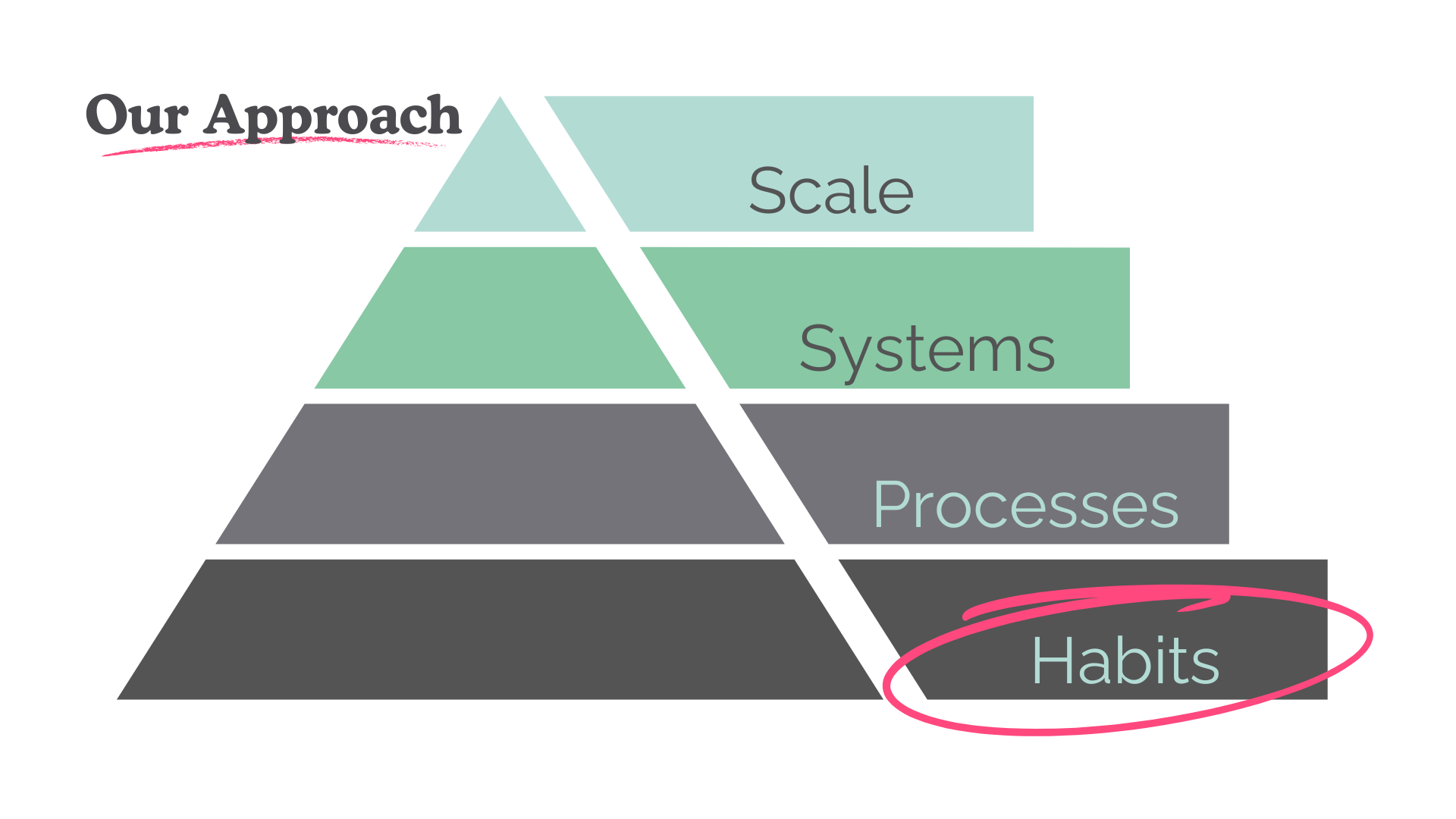Our Habits Drive Our Business Outcomes
Today, we’re talking about the first, and foundational layer of our approach to business success--habits!
Bike rides have been a constant throughout Greg’s and my relationship, and especially in the early years. Like any couple into biking, we romanticized the idea of riding a tandem bike together. Until one day…
On a hot, humid summer morning more than a decade ago, we joined a large group of riders for a group ride in St. Peters, MO. Waiting in line to check in and register, we met a retired couple who were riding a tandem that day.
Having never ridden one, we asked them what it was like and if they enjoyed riding in tandem better than riding their bikes separately.
“Whatever direction your relationship is headed, a tandem bicycle will get you there faster,” one of them remarked, as the other chuckled.
The same could be said for the processes and systems in your small business. Whatever direction your business is headed, formalizing your systems and processes will get you there faster.
If your processes aren’t solid or haven’t been designed with intention, building systems to organize and manage them will only create time-consuming and painful ripples in your operations and culture.
Whatever is out of alignment becomes obvious when you tie it all together.
This is why habits form the foundation of our approach to building a business that works for you.
But what are habits? Habit Story, the assessment we offer our clients, defines habits as “ingrained behaviors, forged in the past and driving behavior in the present.”
Our habits can be productive or counterproductive, leading us to act in ways that are productive or counterproductive, thereby shaping the outcomes we experience as productive or counterproductive.
To put this in terms of businesses and how this all ties into the outcomes of a business, let’s break it down:
Our productive and counterproductive habits drive our actions
Our actions are organized into processes and are supported by systems (this is true even if you haven’t formally defined your systems and processes–they exist whether you create them intentionally or not)
Our systems and processes drive our outcomes
Too often, when we encounter an undesirable outcome, we look to the systems and processes that are organizing our actions (like the software we’re using) as the source of the issue or the potential savior, when in reality, the habits driving our choice of action(s) are the likely cause.
The way our habits shape outcomes is subtle and can feel extremely hard to quantify through introspection alone. Teams that freely give feedback can begin to qualify their habits through open dialogue about how everyone is showing up, but an even more helpful and unbiased way to quantify them is through the Habit Story assessment.
Greg and I found Habit Story so powerful when taking it that we got certified to incorporate it into our work. It has changed nearly everything about how we show up in FTLOS and our personal lives, and we love using it with clients and their teams to empower them with similar outcomes.
Interested in learning more about taking the Habit Story assessment? Check out our People Services.


